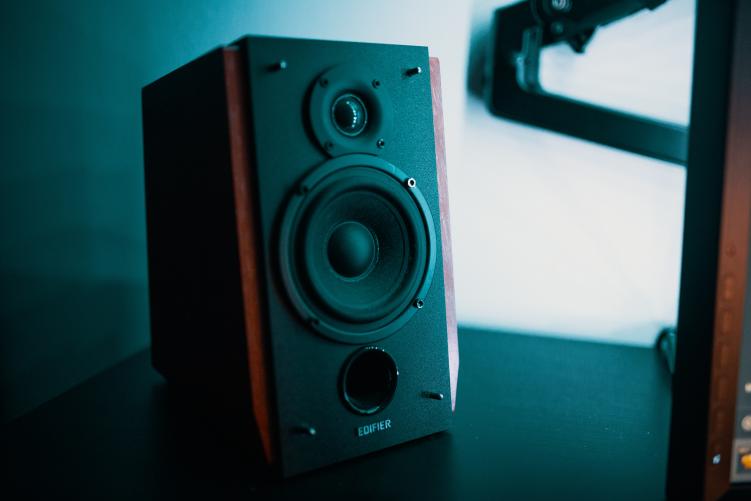Any audio system would be incomplete without speakers, which are often undervalued components. No matter how good your source unit, your amp, and your interconnects and speaker cables are, you will not get great sound if your speakers are not great. To reproduce great sound on your equipment, choosing great speakers is critical. Spend more on your speakers, and you’ll get more out of them.
Are Good Speakers Worth It?
The allure and seduction of expensive speakers are undeniable. We all want to have the best sound we can get, and it can be extremely tempting to spend money without a second thought.
Nevertheless, an inexpensive system with low-quality components will not be able to play low frequencies or clear high notes regardless of the sound quality of the media. In some instances, Spotify can play notes at 30 Hz, so if your system can’t handle that note, you will notice. In judging the quality of a speaker, there are more factors to consider than price.
It is not just the electronic components that make up the cost of a speaker. It is often the design, materials, durability, weight, and even high-end speakers’ branding that makes them more expensive. Often, these factors are less recognized than they are.
As a consumer, you should pay attention to brand-inflated pricing if you desire value and quality. Taking the JBL lsr308, for instance, is a great value that includes all the bells and whistles of a great speaker and well-known brand. A brand is an essential factor to consider when purchasing speakers because it can substantially influence the price.
It isn’t necessarily better to buy expensive speakers, but usually, higher-end speakers will perform better. A speaker’s quality can be assessed objectively, but it’s more important to ensure that they perform the tasks you need them to do.
Speaker Attributes To Look For
The sound pressure generated by an amplifier measured from 1 meter away is equal to the power of one watt. The following information may seem daunting, but try to determine the speakers’ dB level between 85 and 91 dB. Anything below this level is not worth considering.
Poor speakers tend to have less sensitivity than good speakers. In other words, more sensitive speakers require less power to produce the same volume, as they require less force to make a sound.
A high-quality speaker should not distort your sound even if you crank it up to its maximum. When you play too loudly, you can hear distortion and vibration, which are signs of poor performance.
An excellent set of speakers will have a clear treble regardless of the volume since treble is the highest end of the sound wave spectrum.
Subwoofers can be present or absent without causing any problems. No matter what setup is used, the bass should always be noticeable.
Sound peaks during a film can be measured in this way since they are short bursts of volume. A speaker with ample headroom is ideal for this.
A speaker’s accuracy at reproducing audio is measured through this figure. It is essential to choose speakers with low error rates, and you should aim for a range of 0.05% to 0.08%.
The speaker impedance will tell you how much power the speaker needs to function appropriately, measured in ohms. In any case, 8 ohms is usually sufficient for the job.
What Will You Get When You Spend More For Speakers?
Speakers that cost more often feature improved materials and designs that may impact sound quality. You will start to notice more details once you go from $30 to $100 per pair, such as the subtle taps of a drumstick on a cymbal, or a guitarist’s fingers sliding across the fingerboard, or a singer whispering for so much power.
It creates what audiophiles refer to as a soundstage, similar to what one would experience in a recording studio or event venue. The music still has its groove, but you also hear a broader range of sounds, including deeper bass notes. When listening to quality speakers, you experience music more like you’re hearing it live and less like you’re listening to a recording.
- It provides better sound quality due to its rigid enclosure
- Improved speaker drivers are provided
- You can expect improved bass quality
- A crossover that works decently
- A more pleasing aesthetics or appearance
- Manufacturing with greater consistency
How to improve the sound quality of your speakers
Price and quality, along with features and usage, can all be subjective to the user, regardless of how much you wish to spend on your speakers. Although some prefer to spend more on their audio quality, the following can improve the overall sound experience.
- Sound reflections can be easily corrected if your room acoustics are improved
- Audio cables must never be scrimped on
- It’s critical to place speakers correctly
- Make sure that everything is unoccupied in front of the speaker
- A comfortable home theatre experience starts with carefully positioned seats
Final Words
It is crucial to choose the perfect speaker for your needs based on where and how you will be using it. High-quality speakers are an excellent option, but personal preferences and functionalities are equally important. Some speakers are ideal for music, recording, or producing sounds, while others are intended to improve sound quality in films.


Any audio system would be incomplete without speakers, which are often undervalued components. No matter how good your source unit, your amp, and your interconnects and speaker cables are, you will not get great sound if your speakers are not great. To reproduce great sound on your equipment, choosing great speakers is critical. Spend more on your speakers, and you’ll get more out of them.
Are Good Speakers Worth It?
The allure and seduction of expensive speakers are undeniable. We all want to have the best sound we can get, and it can be extremely tempting to spend money without a second thought.
Nevertheless, an inexpensive system with low-quality components will not be able to play low frequencies or clear high notes regardless of the sound quality of the media. In some instances, Spotify can play notes at 30 Hz, so if your system can’t handle that note, you will notice. In judging the quality of a speaker, there are more factors to consider than price.
It is not just the electronic components that make up the cost of a speaker. It is often the design, materials, durability, weight, and even high-end speakers’ branding that makes them more expensive. Often, these factors are less recognized than they are.
As a consumer, you should pay attention to brand-inflated pricing if you desire value and quality. Taking the JBL lsr308, for instance, is a great value that includes all the bells and whistles of a great speaker and well-known brand. A brand is an essential factor to consider when purchasing speakers because it can substantially influence the price.
It isn’t necessarily better to buy expensive speakers, but usually, higher-end speakers will perform better. A speaker’s quality can be assessed objectively, but it’s more important to ensure that they perform the tasks you need them to do.
Speaker Attributes To Look For
The sound pressure generated by an amplifier measured from 1 meter away is equal to the power of one watt. The following information may seem daunting, but try to determine the speakers’ dB level between 85 and 91 dB. Anything below this level is not worth considering.
Poor speakers tend to have less sensitivity than good speakers. In other words, more sensitive speakers require less power to produce the same volume, as they require less force to make a sound.
A high-quality speaker should not distort your sound even if you crank it up to its maximum. When you play too loudly, you can hear distortion and vibration, which are signs of poor performance.
An excellent set of speakers will have a clear treble regardless of the volume since treble is the highest end of the sound wave spectrum.
Subwoofers can be present or absent without causing any problems. No matter what setup is used, the bass should always be noticeable.
Sound peaks during a film can be measured in this way since they are short bursts of volume. A speaker with ample headroom is ideal for this.
A speaker’s accuracy at reproducing audio is measured through this figure. It is essential to choose speakers with low error rates, and you should aim for a range of 0.05% to 0.08%.
The speaker impedance will tell you how much power the speaker needs to function appropriately, measured in ohms. In any case, 8 ohms is usually sufficient for the job.
What Will You Get When You Spend More For Speakers?
Speakers that cost more often feature improved materials and designs that may impact sound quality. You will start to notice more details once you go from $30 to $100 per pair, such as the subtle taps of a drumstick on a cymbal, or a guitarist’s fingers sliding across the fingerboard, or a singer whispering for so much power.
It creates what audiophiles refer to as a soundstage, similar to what one would experience in a recording studio or event venue. The music still has its groove, but you also hear a broader range of sounds, including deeper bass notes. When listening to quality speakers, you experience music more like you’re hearing it live and less like you’re listening to a recording.
How to improve the sound quality of your speakers
Price and quality, along with features and usage, can all be subjective to the user, regardless of how much you wish to spend on your speakers. Although some prefer to spend more on their audio quality, the following can improve the overall sound experience.
Final Words
It is crucial to choose the perfect speaker for your needs based on where and how you will be using it. High-quality speakers are an excellent option, but personal preferences and functionalities are equally important. Some speakers are ideal for music, recording, or producing sounds, while others are intended to improve sound quality in films.
Related Content: